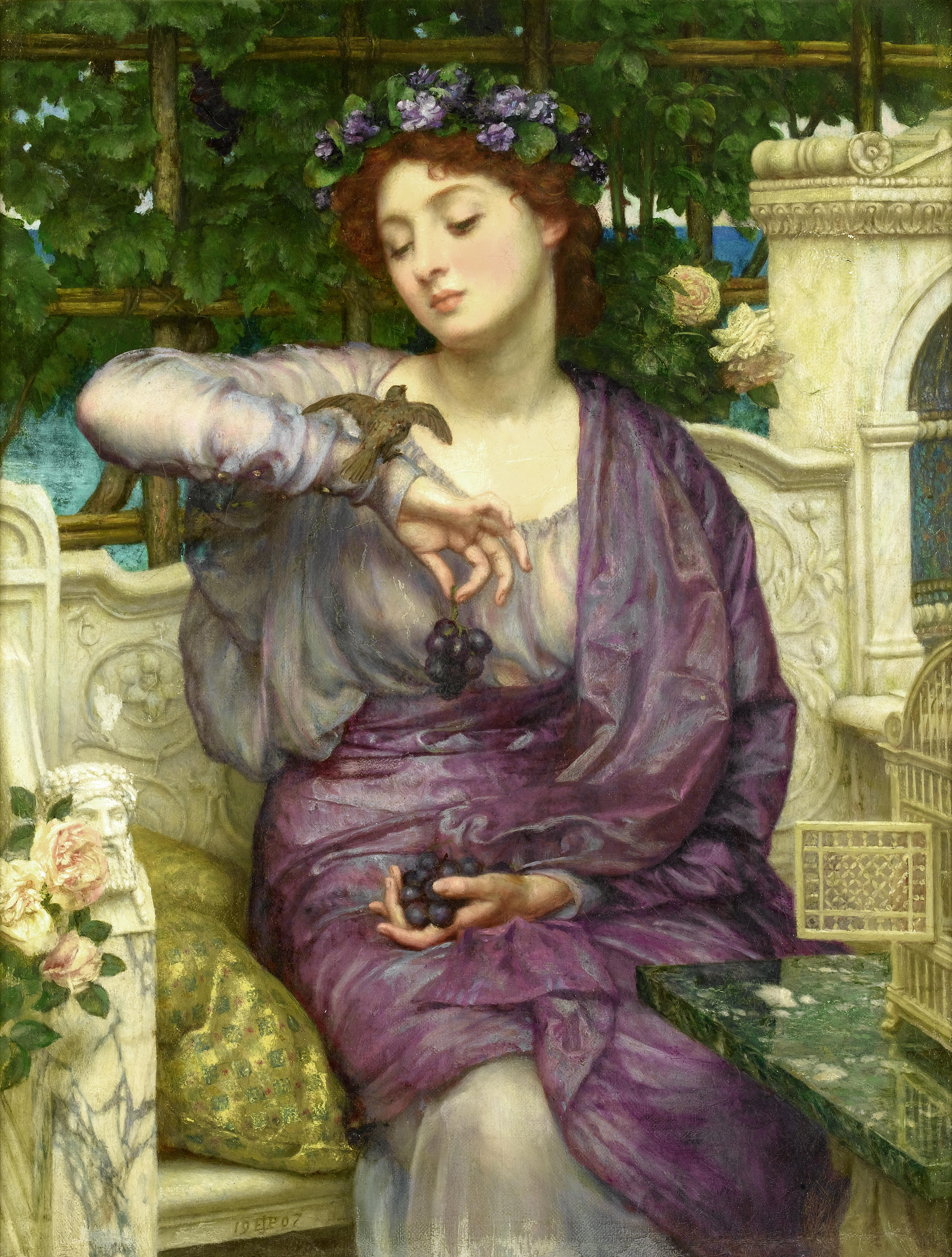by Fenella Johnson
"Odio et amo" begins Catullus 85. "I hate and I love."
 |
| Clodia |
Catullus is writing about the notorious Clodia here-his great muse-who seems like the most exciting person at every party you've ever been to; she had several affairs while married, poisoned her husband and had several more gleefully afterwards before she ended up with Catullus. Becoming bored with him,she discarded him and took up with one of his friends-inspiring some of the greatest love poetry, or at least the first great love poems.
She is referred to in Catullus's poetry as Lesbia-and her brother Clodius as Lesbius, who if Cicero is to be believed (a bitter political enemy who eventually has Clodious murdered by a mob) she had a incestuous relationship with. One of her ancestors was sued for calling Roman citizen in the streets 'peasants' and demanding they move out of their way. A storyline Hollywood would discard as unrealistic.
Catullus was infatuated with Clodia,and this obsession festered in his work-first mutual, and then not-and in a seemingly simple line, he sums up that peculiar obsessiveness,which has fuelled not only his work, but others ;'I hate and i love.'Like yin and yang,these words are interchangeable, and they need each other,to restore balance, to keep peace. I love and I hate,I hate and I love.
 |
| Clodia, as imagined in a later era (by Sir John Poynter) |
The definition of muse is a woman,or a force portrayed as a woman who is the source of inspiration for a creative artist-and there is something captivating in the literary muse, be they person or place, and it is more than us simply rooting for the writer to get the girl,to win.
Sometimes we don't even like the writer.
Sometimes it can feel like we are pressing our noses against the glass, looking in on the writer as they pursue their great obsession and because so many literary works have been immortalised, the muses-whoever,whatever they maybe-have been immortalised alongside them.
They can seem dreamlike-we know how their hair falls but not what they think. They have no voice.
The writer watches them but never knows who they are; Catullus’s greatest issue with Clodia is that she never tells the truth, or at least not all of it-"you said you loved me",he complains, “you would not chose Jupiter above me".Catullus's poems seemingly focus on his deep contempt, hostility, desire, and dedication toward Cloidia,but they actually reveal his scepticism, criticism, and pity towards himself. It’s no surprise then that the next line is: why do I do this?-turns the obsession in on itself to answer questions about his nature-the muse is a device to explore his own feelings and his own actions.
When Daphne Du Maurier begins Rebecca with "last night I dreamt I went to Manderly again,"she also begins a dreamlike obsession with the house, at turns darkly strange and sinister, other times overbearing, that is more important than any of the characters. When Manderly burns down at the end, it signifies something bigger then a house burning down.
It was the muse and with the muse gone, life is no longer exciting but instead dull.
They watch the cricket and have afternoon tea, and the life they may have had with the house-with the muse, the life Catullus may have had with Clodia, stumbles on out of sight. The muse signifies what has happened and what might happen if only we are brave enough, wise enough, if only we love enough-,and are a device to make a point about the writer or society in general.
We love the muse for how they inspire the writer, but we hate the muse for what they do to the writer-because the writer is in charge of the reader's relationship with the muse. Catullus is bitter and angry towards Clodia-so too then is the reader.When she discards him, she discards us. Sweet love poems are interesting sometimes,but bitter ones fuelled by hatred,anger,despair,humour-some of Catullus's poems are funny for how much they pretend not to care, while illustrating how much he really does-and they-and the person who caused them-are much more fascinating and interesting.
 |
| Catullus |
It is through Clodia too, that we discover more about Catullus-for ,who it is fair to say is interesting in his own right-he died aged thirty, having made enemies of all his friends;he threatened one that he'd write a nasty poem about him if he didn't stop stealing his napkins in one his poems, and he wrote Catullus 16,which really speaks for itself.
In the end, muses need writers and writers need muses. The muse does not become immortalised without the writer or the writer without the muse-Maud Gonne, Yeats’s great love who refused his proposals seven times understood this.She refused his proposals, she explained because it made him a better poet.
The muse was initially a divinity, the daughter of Zeus and Mnemosyne, the goddess of memory. At first, there were three muses, and then the Greek poet Hesiod expanded their number to nine: Calliope, Clio, Euterpe, Erato, Terpsichore, Thalia, Melpomene, Polyhymnia, Urania. It was the Romans who assigned a particular function to each muse but the muse’s first literary introduction was Greek, in Homer’s Odyssey.”Sing to me of the man, Muse, of twists and turns driven time and again off course,” he wrote and so it began.
The muse is no longer a divine figure but she-or he-continues to inspire great literature, and we-the reader-continue to be fascinated.
really interesting post!
ReplyDelete